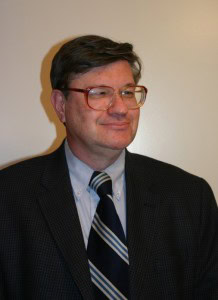AHA members are involved in all fields of history, with wide-ranging specializations, interests, and areas of employment.To recognize our talented and eclectic membership, AHA Todayfeatures a regular AHA Member Spotlight series.
Christopher R. (Chris) Friedrichs is a professor of history at the University of British Columbia. He lives in Vancouver, BC, Canada, and has been a member since 1974.
Alma maters: AB, Columbia University; MA, PhD, Princeton University
Fields of interest: European history, German history, urban history, Jewish history
When did you first develop an interest in history?
From earliest childhood. I remember my father telling me stories about the ancient world when I was scarcely old enough to read. Then, when I could read, I wolfed down children’s biographies of famous Americans. The focus changed over the years, but the interest never abated.
What projects are you working on currently?
Two unrelated but equally absorbing projects: (1) ritualized house destruction as a form of criminal punishment in early modern Europe and (2) the transformation of the Jewish community of Dresden in the 1830s.
Have your interests changed since graduate school? If so, how?
For the first 25 years of my career I worked mostly on the social history of German and European cities in the early modern era. I remain as interested as ever in this topic, but I have also undertaken a comparison of early modern European and Asian urban political cultures and I am currently working on the history of Jewish communities in early 19th-century Germany.
Is there an article, book, movie, blog etc. that you could recommend to fellow AHA members?
Old but still great: Natalie Zemon Davis, Society and Culture in Early Modern France; newer but equally great: Timothy Snyder: Bloodlands: Europe between Hitler and Stalin.
What do you value most about the history profession?
That it studies history, of course.
Why did you join the AHA?
It just seemed obvious that I should join the main historical organization in my country of origin. Likewise, when I was appointed to a job in Canada it seemed obvious to join the Canadian Historical Association.
Do you have a favorite AHA annual meeting anecdote you would like to share?
In December 1974 I presented a paper at the annual meeting of the AHA in Chicago. It was my first paper at a professional conference and I wanted to look good, so I thought I should shave just before leaving my hotel to go to the session. Unfortunately I cut myself severely while shaving and ended up running down Michigan Avenue in the bitter December cold frantically applying tissues to my jaw to stanch the bleeding. It was hardly an auspicious way to launch my professional career. But in fact the paper went well and was soon in print, so the story had a happy ending.
Other than history, what are you passionate about?
My family. Nineteenth-century fiction. Journalism. Exploring cities. And the excellent Canadian medical system.
Any final thoughts?
I love teaching history just as much now as I did when I began doing so 42 years ago. And the university at which I teach is a great place to work. But I am profoundly unhappy about the growing gulf in our profession between the well-paid elite of tenure-stream and tenured faculty members—the group to which I am privileged to belong—and the vast army of underpaid and professionally insecure contract/adjunct/sessional instructors. Addressing this unfortunate reality will be the great challenge for the next generation of academics.
This post first appeared on AHA Today.
This work is licensed under a Creative Commons Attribution-NonCommercial-NoDerivatives 4.0 International License. Attribution must provide author name, article title, Perspectives on History, date of publication, and a link to this page. This license applies only to the article, not to text or images used here by permission.